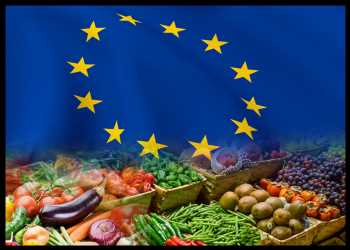Eurozone harmonized prices logged a slower increase in February, while core inflation accelerated to a record as estimated initially. The underlying inflation is likely to remain sticky with wage growth gaining strength towards the end of 2022.
The harmonized index of consumer prices, or HICP, increased 8.5 percent on a yearly basis. That was slightly slower than the 8.6 percent gain in January, final data from Eurostat showed Friday. The rate also matched the initial estimate published on March 2.
Meanwhile, core inflation that excludes the volatile prices of energy, food, alcohol and tobacco, accelerated to a record 5.6 percent, matching the preliminary estimate, from 5.3 percent in January.
On a monthly basis, the HICP gained 0.8 percent in February, which also matched the initial estimate.
The European Central Bank hiked its interest rates by 50 basis points on Thursday as inflation is expected to remain “too high for too long”.
In the latest ECB Staff macroeconomic projections, released Thursday, headline inflation projection for this year was lowered to 5.3 percent from 6.3 percent. The outlook for next year was cut to 2.9 percent from 3.4 percent.
On the other hand, the core inflation forecast for this year was raised to 4.6 percent from 4.2 percent.
Eurostat data showed that all HICP components showed faster growth in February. Food, alcohol and tobacco and energy prices registered double-digit increases of 15.0 percent and 13.7 percent, respectively.
At the same time, non-energy industrial goods prices climbed 6.8 percent and services cost moved up 4.8 percent.
In the fourth quarter, hourly labor cost accelerated after slowing in the third quarter. Hourly labor costs increased 5.7 percent annually, faster than the 3.7 percent increase in the third quarter.
The two main components of the labor costs namely wages and salaries and non-wage costs increased in the fourth quarter. Wages and salaries advanced 5.1 percent and non-wage component climbed 7.7 percent.
“The strength of wage growth and core inflation will reinforce ECB policymakers’ conviction that, provided the region’s banks don’t come under further sustained pressure, their tightening cycle is not over,” Capital Economics economist Jack Allen-Reynolds said.
Source: Read Full Article
-
B&M European Value Retail FY23 Profit Down, Cuts Dividend; Sees Growth In FY24
-
‘Old-world’ stocks gave the ASX an edge this year. Can it continue?
-
UK Manufacturing Activity Contracts Most Since 2020
-
Plentiful prams but pitiful profits: Is it time to buy Baby Bunting?
-
Eurozone Investor Confidence Signals Economic Downturn: Sentix

